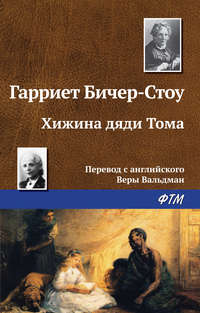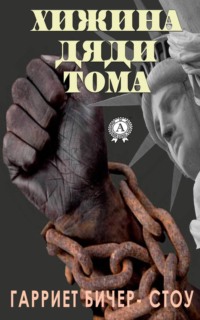
The Salem Witchcraft, the Planchette Mystery, and Modern Spiritualism
In conversation with such, we have often listened to remarks like this: “I do not seek these things – I do not search out mediums nor attend spiritual circles. I have attained all I wish to know, and am quite indifferent now whether I see another manifestation.” “And what,” we inquired, “is this something that you have attained?” “Oh, I feel perfectly certain that my friend is not dead – but alive, unchanged, in a region of joy and blessedness, expecting me, and praying for me, and often ministering to me.”
Compare this with the language of St. Augustine, and we shall see that it is simply a return to the stand-point of the primitive Church.
Among the open and professed Spiritualists are some men and women of pure and earnest natures, and seriously anxious to do good, and who ought to be distinguished from the charlatans who have gone into it merely from motives of profit and self-interest. Now it is to be remarked that this higher class of spiritualists, with one voice, declare that the subject of spiritual communication is embarrassed with formidable difficulties. They admit that lying spirits often frequent the circle, that they are powerful to deceive, and that the means of distinguishing between the wiles of evil spirits and the communications of good ones are very obscure.
This, then, is the prospect. The pastures of the Church have been suffered to become bare and barren of one species of food which the sheep crave and sicken for the want of. They break out of the inclosure and rush, unguided, searching for it among poisonous plants, which closely resemble it, but whose taste is deadly.
Those remarkable phenomena which affect belief upon this subject are not confined to paid mediums and spiritual circles, so called. They sometimes come of themselves to persons neither believing in them, looking for them, nor seeking them. Thus coming they can not but powerfully and tenderly move the soul. A person in the desolation of bereavement, visited with such experiences, is in a condition which calls for the tenderest sympathy and most careful guidance. Yet how little of this is there to be found! The attempt to unvail their history draws upon them, perhaps, only cold ridicule and a scarcely suppressed doubt of their veracity. They are repelled from making confidence where they ought to find the wisest guidance, and are drawn by an invisible sympathy into labyrinths of deception and error – and finally, perhaps, relapse into a colder skepticism than before. That such experiences are becoming common in our days, is a fact that ought to rouse true Christians to consideration, and to searching the word of God to find the real boundaries and the true and safe paths.
We have stated in the last article, and in this, what the belief and the customs of the primitive Christians were in respect to the departed. We are aware that it does not follow, of course, that a custom is to be adopted in our times because the first Christians preached and taught it. A man does not become like his ancestors by dressing up in their old clothes – but by acting in their spirit. It is quite possible to wear such robes and practice such ceremonies as the early Christians did and not to be in the least like them. Therefore let us not be held as advocating the practice of administering the eucharist at funerals, and of praying for the dead in the eucharistic service, because it was done in the first three centuries. But we do hold to a return to the spirit which caused these customs. We hold to that belief in the unbroken unity possible between those who have passed to the higher life than this. We hold to that vivid faith in things unseen which was the strength of primitive Christians. The first Christians believed what they said they did – we do not. The unseen spiritual world, its angels and archangels, its saints and martyrs, its purity and its joys, were ever before them, and that is why they were such a mighty force in the world. St. Augustine says that it was the vision of the saints gone before that inspired them with courage and contempt of death – and it is true.
In another paper we shall endeavor to show how far these beliefs of the primitive Church correspond with the Holy Scripture.
DR. DODDRIDGE’S DREAM
[In concluding these Psychological discussions, what is there more appropriate than the following? If it be called only a dream, or, even a delusion, what harm can come of it? Is it not in keeping with Scripture teachings, as now interpreted? For ourselves, we enjoy our own opinions on subjects not susceptible of proof to the external senses. Others may do the same. Editor.]
Dr. Doddridge was on terms of very intimate friendship with Dr. Samuel Clarke, and in religious conversation they spent many happy hours together. Among other matters, a very favorite topic was the intermediate state of the soul, and the probability that at the instant of dissolution it was introduced into the presence of all the heavenly hosts, and the splendors around the throne of God. One evening, after a conversation of this nature, Dr. Doddridge retired to rest, and “in the visions of the night” his ideas were shaped into the following beautiful form.
He dreamed that he was at the house of a friend, when he was taken suddenly and dangerously ill. By degrees he seemed to grow worse, and at last to expire. In an instant he was sensible that he had exchanged the prison-house and sufferings of mortality for a state of liberty and happiness. Embodied in a slender, aerial form, he seemed to float in a region of pure light. Beneath him lay the earth, but not a glittering city or a village, the forest or the sea were visible. There was naught to be seen below save the melancholy group of his friends, weeping around his lifeless remains. Himself thrilled with delight, he was surprised at their tears, and attempted to inform them of his happy change, but by some mysterious power, utterance was denied; and as he anxiously leaned over the mourning circle, gazing fondly upon them and struggling to speak, he rose silently upon the air, their forms became more and more indistinct, and gradually melted away from his sight. Reposing upon golden clouds, he found himself swiftly mounting the skies, with a venerable figure at his side, guiding his mysterious movements, and in whose countenance he discovered the lineaments of youth and age blended together, with an intimate harmony and majestic sweetness.
They traveled together through a vast region of empty space, until, at length, the battlements of a glorious edifice shone in the distance, and as its form rose brilliant and distinct among the far-off shadows that flitted athwart their path, the guide informed him that the palace he beheld was, for the present, to be his mansion of rest. Gazing upon its splendor, he replied that while on earth he had often heard that eye had not seen, nor ear heard, nor could the heart of man conceive, the things which God hath prepared for those who love him; but notwithstanding the building to which they were rapidly approaching was superior to anything he had before beheld, yet its grandeur had not exceeded the conceptions he had formed. The guide made no reply – they were already at the door, and entered. The guide introduced him into a spacious apartment, at the extremity of which stood a table, covered with a snow-white cloth, a golden cup, and a cluster of grapes, and then said that he must leave him, but that he must remain, for in a short time he would receive a visit from the lord of the mansion, and that during the interval before his arrival, the apartment would furnish him sufficient entertainment and instruction. The guide vanished, and he was left alone. He began to examine the decorations of the room, and observed that the walls were adorned with a number of pictures. Upon nearer inspection he perceived, to his astonishment, that they formed a complete biography of his own life. Here he saw depicted, that angels, though unseen, had ever been his familiar attendants; and sent by God they had sometimes preserved him from imminent peril. He beheld himself first represented as an infant just expiring, when his life was prolonged by an angel gently breathing into his nostrils. Most of the occurrences delineated were perfectly familiar to his recollection, and unfolded many things which he had never before understood, and which had perplexed him with many doubts and much uneasiness. Among others he was particularly impressed with a picture in which he was represented as falling from his horse, when death would have been inevitable had not an angel received him in his arms and broken the force of his descent. These merciful interpositions of God filled him with joy and gratitude, and his heart overflowed with love as he surveyed in them all an exhibition of goodness and mercy far beyond all that he had imagined.
Suddenly his attention was arrested by a knock at the door. The lord of the mansion had arrived – the door opened and he entered. So powerful and overwhelming, and withal of such singular beauty was his appearance, that he sank down at his feet, completely overcome by his majestic presence. His lord gently raised him from the ground, and taking his hand led him forward to the table. He pressed with his fingers the juice of the grapes into the golden cup, and after having himself drank, he presented it to him, saying, “This is the new wine in my Father’s kingdom.” No sooner had he partaken than all uneasy sensations vanished, perfect love had now cast out fear, and he conversed with the Saviour as an intimate friend. Like the silver rippling of a summer sea he heard fall from his lips the grateful approbation: “Thy labors are finished, thy work is approved; rich and glorious is the reward.” Thrilled with an unspeakable bliss, that pervaded the very depths of his soul, he suddenly saw glories upon glories bursting upon his view. The Doctor awoke. Tears of rapture from this joyful interview were rolling down his cheeks. Long did the lively impression of this charming dream remain upon his mind, and never could he speak of it without emotions of joy, and with tender and grateful remembrance.
1
Address on the Present State of Therapeutics. Delivered at the opening meeting of the Clinical Society of London, January 10, 1868. By Sir Thomas Watson, Bart., M.D.
2
Query: Have we here the spiritus mundi of the old philosophers?
3
See an article entitled “A Remarkable Case of Physical Phenomena,” in the Atlantic Monthly for August, 1868.








